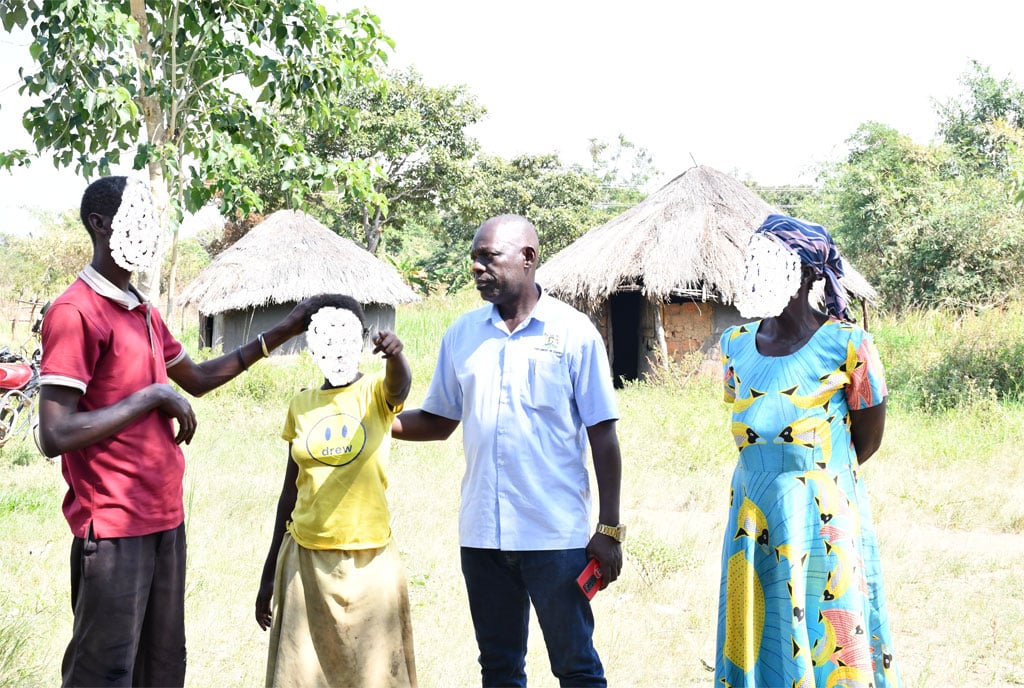Prime
Double tragedy of nodding syndrome and sexual abuse

What you need to know:
- Local authorities and families are deeply concerned, noting the numerous children born to nodding syndrome survivors whose fathers are untraceable. Despite these challenges, the children are reportedly in good health.
The nodding syndrome crisis in northern Uganda remains severe, with families in the region lamenting the ongoing sexual abuse of affected girls.
In Odek Sub-county, Omoro District, many girls with nodding syndrome are either pregnant or raising children without known fathers.
These girls, who often cannot recognise their assailants due to the syndrome’s neurological impact, are left to care for children alone.
Some have contracted HIV/Aids, compounding their struggles to provide for their children and themselves.
Local authorities and families are deeply concerned, noting the numerous children born to nodding syndrome sufferers whose fathers are untraceable.
Christine from Odek Sub-county discovered her 18-year-old daughter, Mirriam, was pregnant late last year.
Mirriam, a nodding syndrome survivor, identified the father as Richard, who denied any involvement before both families’ elders.
Mirriam, who was in Primary Six, is now nearing delivery, relying on her mother for antenatal care at local health centres. The family struggles with the costs of childbirth and worries about the future of the unborn child.
Christine expressed her concerns: “The man has denied any knowledge about the pregnancy. We have problems commuting to the hospital and also buying things for her delivery because the cost of these items is very high. This girl is suffering from nodding syndrome.”
She added: “As a family, we cannot see our daughter suffering because she has been rejected by the person who allegedly made her pregnant. Our worries are now about the future of the unborn child whose identity remains a mystery.”
Patricia, a 25-year-old nodding syndrome patient and mother of two, is cared for by her mother. She receives no support from the children’s fathers, who have not come forward.
Patricia shared her plight: “I am sick, it’s my mother taking care of me and my two children. I can’t even buy clothes for these children and myself. I have not heard from anyone claiming ownership of these children, no one has also come home to claim for them.”
She added: “I want to be supported with food, and seeds for planting because I cannot afford them.”
Mr Michael Rachkara, the Local Council One chairperson of Akoyo Village, reports widespread sexual abuse of nodding syndrome patients, with men disappearing after impregnating the girls.
He refers these cases to authorities, but identifying the perpetrators is difficult due to the patients’ memory issues.
“The problem we have relating to these patients of nodding syndrome is that some people sexually abuse them, others even make them pregnant and run away. They (men) don’t even make follow-ups on these children. That is the biggest problem we are facing,” he said.
“As a local leader, I have been referring such cases to the authority and community development department whenever they are reported to me, but the problem is that these patients can hardly recognise the perpetrators. This makes it very hard to identify and apprehend them,” he added.
In Angagura B Village, Pader District, 68-year-old Grace, who is visually impaired, cares for three children born to her nodding syndrome-afflicted daughter.
The family has three children with the condition and cannot trace the fathers of the grandchildren.
Authorities, including Mr Freddie Stephen Okello, the chairperson of Angagura Sub-county, acknowledged the challenge of tracing these fathers.
Mr Justine Ojok, a senior clinical officer and nodding syndrome focal point person, highlights the lack of care for the children and the difficulty in apprehending suspects due to the patients’ vulnerability.
“We receive cases of sexual abuse, mostly defilement, and rape, and these cases fall through normal channels. But the vulnerability of the parents and conditions of these children make it difficult to get the suspects,” he explained.
Cases
Omoro District has 212 cases of nodding disease syndrome, with no new cases reported. The condition, an uncommon neurological disorder, involves epilepsy and cognitive issues.
The plight of families dealing with nodding syndrome highlights the urgent need for enhanced support and reopening care centers to address this ongoing crisis.



